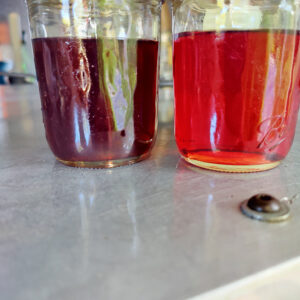 Recently, the Hart team was able to provide diesel fuel polishing for a 5,500-gallon generator tank in Boca Raton, Florida. This client was relying on their generator and wanted to ensure that any level of contamination would not jeopardize or damage the generator. As you can see from the image, this diesel was in desperate need of cleaning, and the contaminants may have impacted how efficiently the generator ran – even if it happened slowly.
Recently, the Hart team was able to provide diesel fuel polishing for a 5,500-gallon generator tank in Boca Raton, Florida. This client was relying on their generator and wanted to ensure that any level of contamination would not jeopardize or damage the generator. As you can see from the image, this diesel was in desperate need of cleaning, and the contaminants may have impacted how efficiently the generator ran – even if it happened slowly.
Hart Provides Fuel Polishing for Generator Tank
Diesel contamination is not a mystery to those who work with or need it. In fact, it is virtually impossible to avoid fuel contamination at some level, as it is contaminated the minute it leaves the refinery. The trick is ensuring that the contamination level is low enough that it doesn’t impact the fuel or its ability to do its job. The government sets the limits for contamination, and types of contamination, that it will allow in fuel – but many companies turn to fuel polishing to ensure the highest purity and avoid damage to engines or disruption in service.
Reasons for Fuel Polishing
There are different types of contamination of fuel, and many cannot be avoided. Here are just a few:
- Water
- Microbial Growth
- Petroleum Products
- Particulates like rust or other metals
When diesel or fuel leaves the refinery, there is always minimal contamination – usually from particulates from the inside of the pipes or fuel tanks themselves. Most are not dangerous and won’t affect the fuel or damage engines. It is important to learn the signs of diesel fuel contamination, so you can prevent such situations.
Ensure Your Equipment is Running Smoothly
High levels of contamination will impact how your equipment and engines run, and over time, it could damage them. Have confidence in your fuel by contacting Hart Fueling today for fuel polishing.